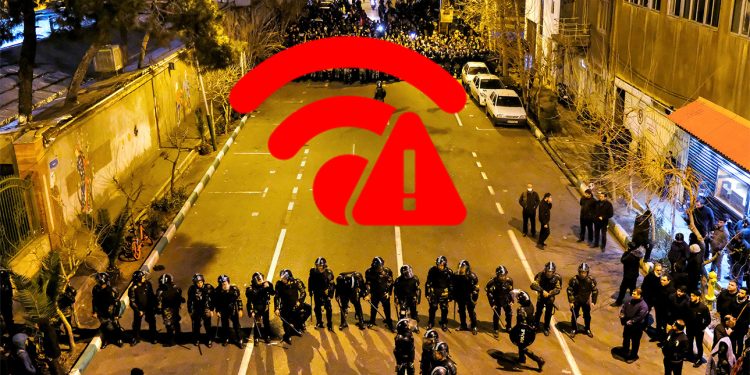NEWS CENTER – Iran’s security forces cracked down hard on activists and journalists after Wednesday’s almost-complete Internet blackout to quell ongoing protests against the death of a young woman last week. Human rights organisations in the country are raising the alarm over the widespread arrest of civil activists and journalists.
According to the Oslo-based Iran Human Rights organisation, Iranian security forces killed at least 31 civilians and arrested hundreds of activists and journalists during the Internet blackout.
IHR stated that its records include the deaths of 11 people killed on Wednesday evening in the town of Amol in the northern Mazandaran province on the Caspian Sea, and six killed in Babol in the same province.
One protester each was killed in the cities of Divandareh, Saqez, Dehgalan, Mahabad, Urmia, Karaj, Piranshahr, Kermanshah, Oshnavieh, Ghouchan, Tabriz, Bandar Anzali, Amol and Ilam, while six were killed in Babol, the group reported.
Jîna Mahsa Amini was arrested by Iran’s morality police for allegedly wearing the compulsory hijab ‘improperly’. Witnesses report seeing the young Kurdish woman beaten as she was taken into custody, and she fell into a coma shortly after. Unable to wake up, Amini died on Friday, sparking a wave of protests starting with her funeral procession and spreading to at least 50 cities to date. Protests continue on the sixth day on Thursday.
According to another report by the Kurdistan Human Rights Network (KHRN), the number of protesters and activists who were arrested in the Kurdistan province number at 530. Eight woman activists by the names of Faranak Rafiei, Baran Saedi, Mahrou Hedayati, Azadeh Jamaati, Zhina Modarres-Gorji, Avin Rasti, Leila Salehi and Bahar Zangiband were arrested in the province and other Kurdish-populated cities of Iran on 20 September, the KHRN said.
Civilians were taken to detention centres of the Security Police, the Ministry of Intelligence and the Islamic Revolutionary Guard Corps (IRGC) Intelligence Organisation.
According to KHRN, these detention centres are among the most intimidating in Iran, where many Kurdish activists have faced interrogations and torture.
Meanwhile, the Committee to Protect Journalists (CPJ) condemned the arrest of journalists by Iran’s security forces during the blackout.
“Iranian authorities must immediately and unconditionally release all journalists arrested while covering mass protests around the country and restore blocked internet access to the country”, the CPJ said on Thursday.
Numerous political and civil rights activists have been summoned, threatened and arrested in various cities in Iran, but due to disruptions in connectivity, accurate information is hard to obtain.




